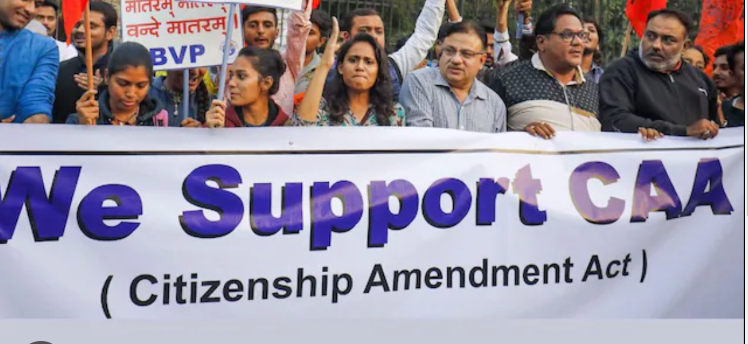
Essential Papers for CAA Applicants Validating Country of Origin
Essential Documents for CAA Applicants Validating Country of Origin
The Citizenship Amendment Act (CAA) has been a subject of considerable debate and scrutiny in India, eliciting varied opinions and concerns. Among its provisions is the opportunity for certain individuals to apply for citizenship based on their country of origin. However, to navigate this process effectively, applicants must provide a range of essential documents to validate their claims. In this article, we delve into the documentation requirements for CAA applicants, aiming to empower individuals seeking citizenship under this legislation.

Understanding the Citizenship Amendment Act: Enacted in December 2019, the Citizenship Amendment Act aims to expedite citizenship for persecuted minorities from neighboring countries such as Afghanistan, Pakistan, and Bangladesh. It provides a pathway to citizenship for Hindu, Sikh, Buddhist, Jain, Parsi, and Christian immigrants who arrived in India before December 31, 2014. This legislation, while welcomed by some as a humanitarian gesture, has also sparked controversy and protests, with concerns raised about its exclusionary nature and its potential impact on India’s secular fabric.
Essential Documentation for CAA Applicants: For individuals seeking citizenship under the CAA, providing the necessary documentation is crucial. The following are some of the key documents that applicants can attach to validate their country of origin:
- Passport and Visa Records: Applicants should submit copies of their passports and any visas they possess, which serve as primary evidence of their entry into India and their country of origin.
- Birth Certificate: A birth certificate issued by the authorities in the applicant’s country of origin is essential. This document helps establish the individual’s identity and nationality.
- Proof of Residence: Documents demonstrating the applicant’s residence in India before the specified cutoff date of December 31, 2014, are required. These may include rental agreements, utility bills, or property ownership records.

- Religious Minority Status: As the CAA prioritizes citizenship for religious minorities, applicants must provide evidence of belonging to one of the specified minority groups. This could include religious affiliation certificates or statements from community leaders.
- Affidavit or Declaration: An affidavit or declaration essential affirming the applicant’s nationality, reasons for seeking citizenship under the CAA, and any relevant circumstances regarding persecution or discrimination in their country of origin can strengthen their case.
- Witness Testimonies: Testimonials from credible witnesses who can attest to the applicant’s identity, nationality, and circumstances in their country of origin can provide additional support.
- Official Records of Persecution or Discrimination: Any official documentation or reports detailing instances of persecution or discrimination faced by the applicant or their community in their country of origin should be included.
- Police Verification Report: A police verification report confirming the applicant’s identity, background, and residential status in India may be requested as part of the citizenship application process.
Empowering CAA Applicants: Navigating the citizenship application process under the CAA can be daunting, especially for individuals who have faced persecution or displacement. By understanding the documentation requirements and assembling the necessary evidence, applicants can empower themselves to assert their claims effectively.
It is essential for applicants to seek guidance from legal experts or organizations specializing in immigration and citizenship matters. These resources can provide valuable assistance in compiling the required documentation, understanding the application process, and addressing any challenges or obstacles that may arise.
Additionally, transparency and integrity in the application process are vital to ensuring fairness and upholding the principles of justice. Authorities responsible for essential reviewing CAA applications must conduct thorough and impartial assessments, taking into account the individual circumstances and evidence presented by each applicant.
The essential Citizenship Amendment Act offers hope and opportunity for individuals seeking refuge and a new beginning in India. However, the success of this legislation depends on the effective implementation of its provisions and the fair treatment of all applicants. By equipping themselves with the necessary documentation and seeking support when needed, CAA applicants can navigate the citizenship process with confidence and hope for a brighter future in their adopted homeland.
For the latest updates-click here.


